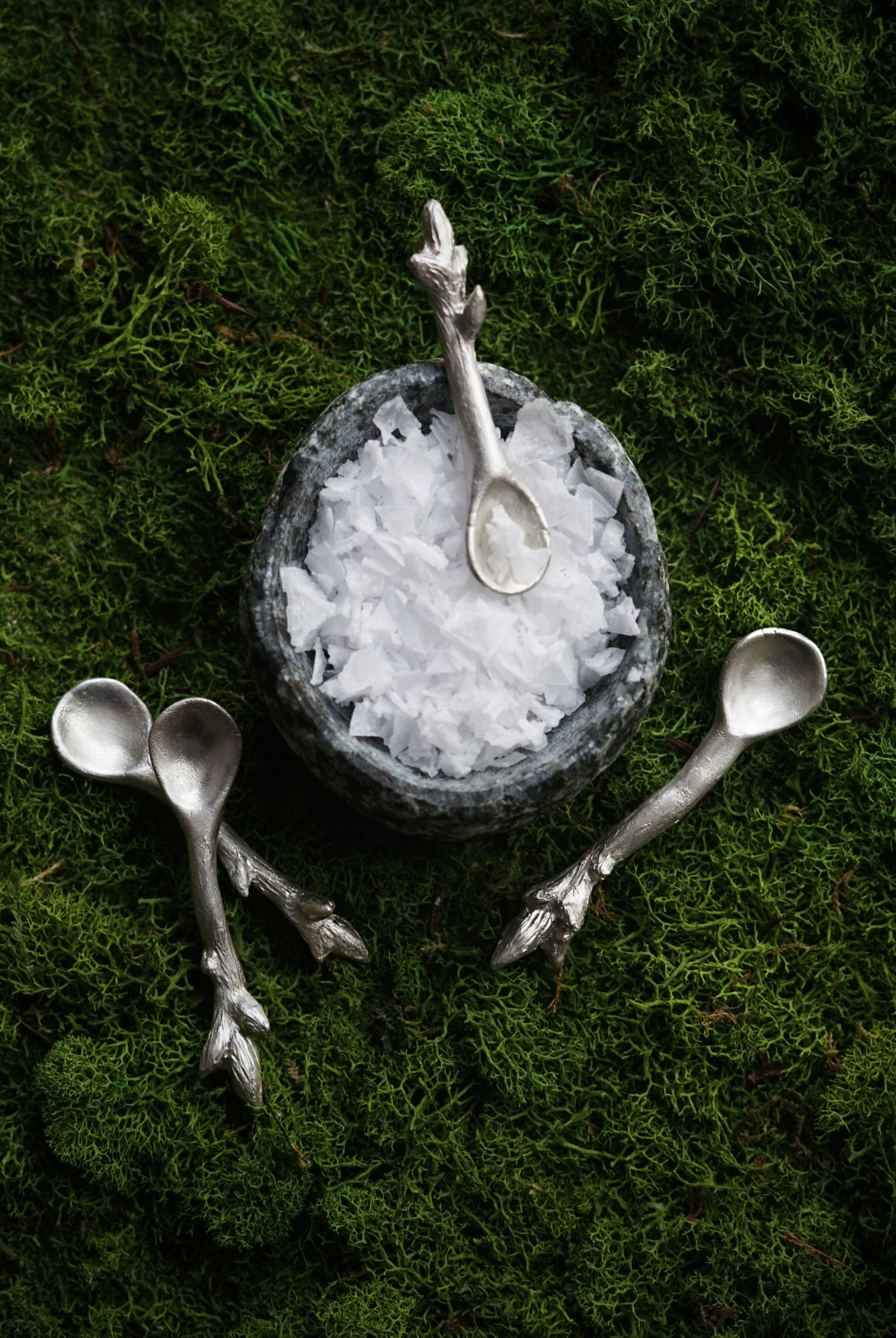Craft Club: Silver Seedling Spice Spoons!
Hooray, it’s Wondercrew Wednesday! I love being able to share something special with my beloved Wondercrew, the kind folks who support me so I can share so many wonderful things with others. This week’s surprise is a Craft Club project that I’ve had a lot of fun designing, I hope you like it too!
Silver Clay Seedling Spice Spoons
Spoons carry a tremendous amount of symbolism in their simple forms. To be “born with a silver spoon in your mouth” is to be born to riches and is an (often impolite) way to describe privilege, whereas to be “spoon fed” is to be fed information excessively, preventing the recipient from doing their own research.
Today, “I don’t have many spoons” is shorthand for “I’m running low on energy, focus, or ability due to exhaustion or pain,” a reference to a widely-used metaphor called “Spoon Theory” first developed by Christine Miserandino as a way to express how it felt to have lupus. It’s become well-known particularly among communities of people with chronic illnesses as a simple way to describe the amount of physical or mental energy one has available on any given day.
Tiny silver spoons have peeked in and out of history, sometimes as a special spoon specifically for mustard, more often as a very dainty way to serve salt. Amidst the plethora of specially-designed cutlery of the lavish Victorian era, teensy spoons certainly had their place at the table. As quoted in Consider the Fork, a fantastic book about dining implements by Bee Wilson:
“[If you loved specialist spoons], you’d have been in heaven in Victorian times, when there were aspic spoons and tomato spoons, sauce spoons and olive spoons, fluted gravy ladles, bon-bon spades, tea scoops, citrus spoons, and Stilton scoops, among others ... Late nineteenth-century America saw an even greater range of new refined spoons: not just rounded soupspoons (first introduced in the 1860s) but distinct spoons for cream soups and bouillons (the latter were smaller). And the serving spoons! Implements included special servers for fried oysters, chipped beef, macaroni, and potato chips...It is not clear, however, that this proliferation in eating and serving tools was a sign of progress.”
Tiny, precious salt spoons (and their accompanying salt cellars) rose to popularity as a way to both highlight and ration salt, long before it became a standard tabletop condiment. Sometimes today you still hear of someone being “worth their salt,” an idiom that dates back to ancient Romans, who would use salt as a form of currency due to its scarcity and value. Having a tiny spoon to dispense this special flavoring would certainly elevate the experience, as well as point out the wealth of someone who could afford to serve dinner with a salt cellar for every guest!
Strangely enough, silver spoons historically provided comfort as well as delicate beauty. Since silver tarnishes on contact with sulfur, arsenic, and other compounds, it could even help detect a case of poisoning!
Today we take both spoons and salt for granted, but it is interesting to revisit the idea of a small, precious spoon as a symbol of something greater, whether a code to indicate a chronic illness warrior, or to highlight a particularly exotic and valuable spice. What does a tiny silver spoon mean to you?
To me, these spoons represent the values of spring: the beauty of buds forming on the trees, the preciousness of hand-foraged spices and wild flavors, and the delicate elegance of dining with such specialized and artistic cutlery.
These precious little spoons are pure silver, sculpted out of a special kind of clay that contains very small fine silver particles bound together with a plant-based, organic binder. You can sculpt and mold it just as you might mold polymer clay. Then, as soon as it is dry, it can be fired with an inexpensive kitchen torch until it glows red, which burns out the binder and allows the silver to sinter together.
Find the rest of this post and the Craft Club Project over on Patreon.com/thewondersmith!
Huge thanks to my Patrons that make sharing all of these lovely posts with you possible (without all of the pop-ups and ads that make browsing other blogs so annoying). If you’re feeling generous, you too can support the wonder with a monthly contribution of your choice. Even $1 helps a lot! Your donation will help to fund this blog as well as my surprise free events and gifts for strangers. Learn more about this program at the link below:
Love what you’ve read here? Don’t forget to Subscribe to get frequent updates of new posts!



















Join me for a little winter night magic as we bake this cake full of rich seasonal flavors and black cocoa!